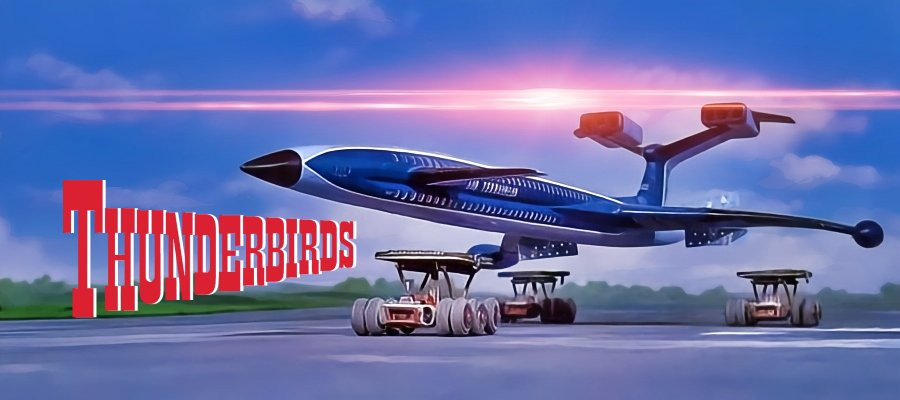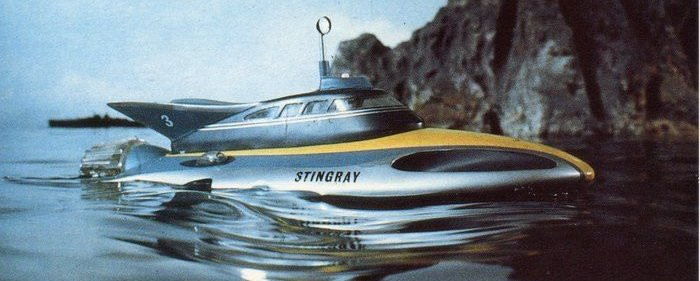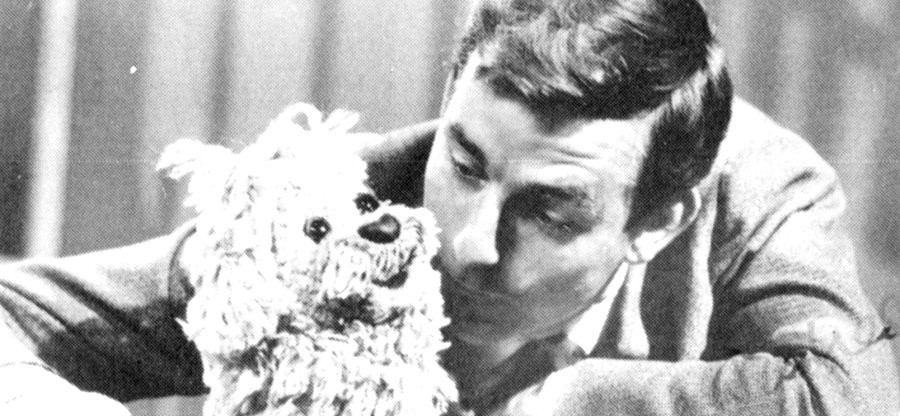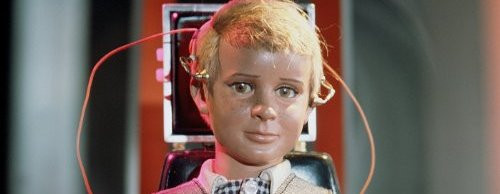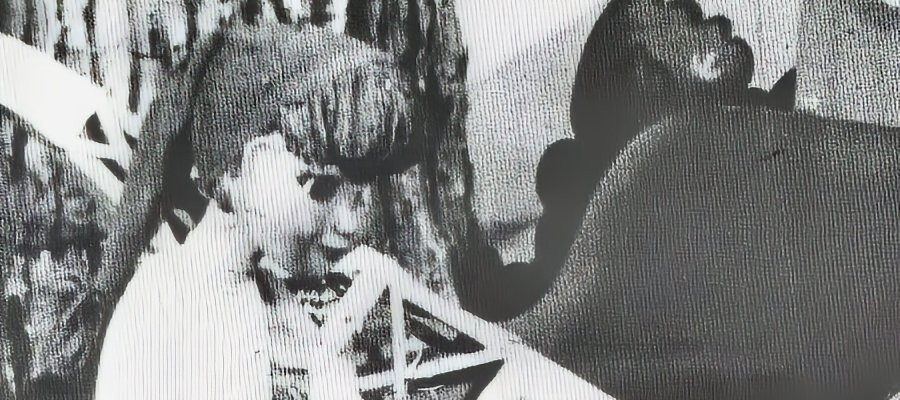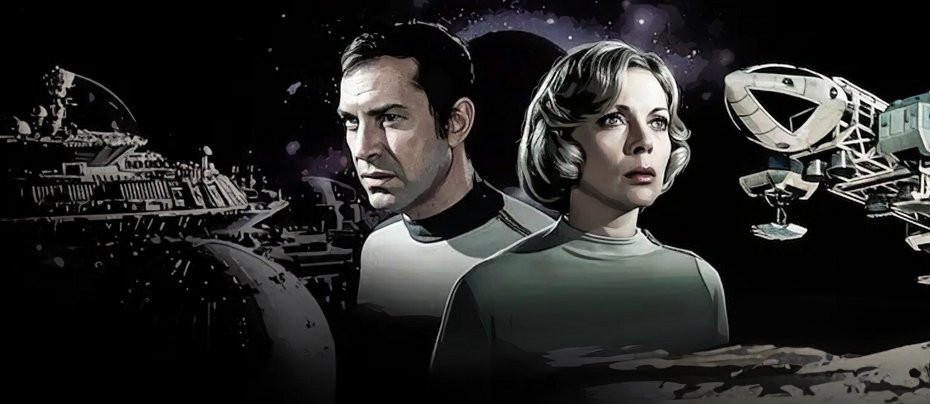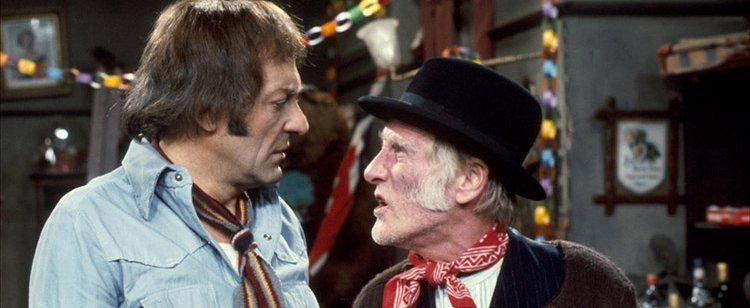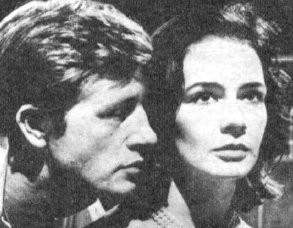
Fireball XL5
1962 - United KingdomFollowing the exploits of Colonel Steve Zodiac as he piloted the 300ft rocket propelled spaceship Fireball XL5, this puppet series captured the imagination of the public at a time when the space race between the USA and Russia was at its height. Although they'd had a previous hit with Supercar, this was the series that established creators Gerry and Sylvia Anderson as major players in the world of television.
Set one hundred years into the future (2063) XL5 patrolled and protected sector 25 of the solar system on behalf of World Space Patrol, run by Commander (Wilbur) Zero, who was based at WSP headquarters on Earth's Space City. Situated on a Pacific island, Space City was purely a scientific establishment with revolving skyscraper, control tower, laboratories, communications centre and rocket controlled launch site.
Completely self-contained, the XL5 ship, one of many patrolling the different space sectors, had living quarters for the crew with an ultra-modernistic lounge, observation window, a laboratory for research and an "astroscope", which gave its crew the benefit of all-condition visibility. Its nose cone, Fireball Junior, detaches for planetary landings while the main ship remains in orbit. Part of the equipment used in the show included a set of air cushioned "Jetmobiles" which were able to travel across any type of terrain, whether on land or sea.
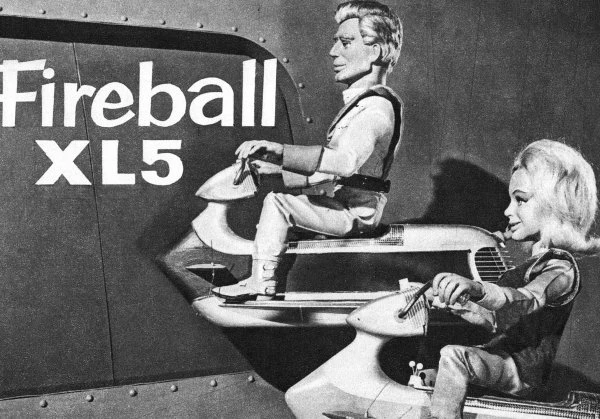
The puppets in Fireball XL5 had fiberglass heads with solenoid cells to control lip movements, synced to pre-recorded human voices. Steve Zodiac, voiced by Paul Maxwell, is joined by Professor Matt Matic, a navigation genius, and Venus, a doctor of space medicine with a continental accent, voiced by Sylvia Anderson.
Robert the Robot, the ship’s transparent automatic pilot, could walk when controlled by sound waves. His quirky trait was emitting steam from his head if something went wrong. Gerry Anderson, voicing a character for the only time in one of his shows, voiced Robert using a device based on an artificial larynx, but he needed to press his mouth so close to the device that he was unable to pronounce the letter 'h' which ultimately gave Robert his distinctive catchphrase, "On our way 'ome." The series also featured Zoonie, a lovable monkey-like creature from the Lazoon race.
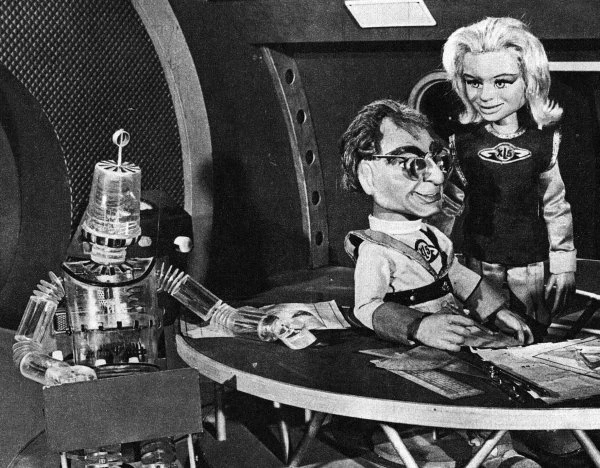
Fireball XL5 was the most elaborate Anderson series at the time, with a dedicated Special Effects studio for close-ups of Space City and spaceship launches. Gerry and Sylvia Anderson wrote the opening episode, with the remaining 38 episodes penned by Alan Fennell, Anthony Marriott, and Dennis Spooner. Fennell later edited the TV21 comic, which featured XL5 with stunning artwork. The theme song, sung by Don Spencer, was released as a single in 1963, spending twelve weeks on the charts and peaking at number 32 on March 23rd. The series was screened in the USA on the NBC Network.
As was to prove to be the case with all of Anderson's Supermarionation output, Fireball XL5 refined and built upon the techniques of its predecessors to give it a gloss and sophistication, which was essential to its audience success. Much more importantly, the series was also yet another inexorable step closer to the imagination gripping success which would prove to be Gerry Anderson's greatest triumph: a series named...Thunderbirds.
TRIVIA
The series was originally presented to Lew Grade in a document entitled 'Century 21'.
Fireball XL5 briefly had the title of 'Nova X 100' before Gerry Anderson renamed it. His inspiration for the eventual title, he says, came from the motor oil Castrol XL.
For filming purposes the spacecraft Fireball XL5 came in a variety of sizes. A five-inch model was used for space shots, a twenty-four inch version was used for launching and landing sequences and a seven-foot model was built for close-ups of the various sections of the craft including scenes involving Fireball Junior.
Christine Glanville made the puppet head for Venus but after several prototypes were sculpted she still couldn’t get approval from Sylvia Anderson. In desperation she asked her father for advice. He suggested she make one that looked like Sylvia. This one was given approval.
Gerry Anderson was never happy that he could not perfect the puppets walk. In order to compensate for this Reg Hill designed jet scooters for the main characters to transport them around.
In spite of the ingenuity that went into creating the models, the designers also owed a debt to their local Woolworth's. Derek Meddings and his team of designers were regular customers of the 'Woolies' store in Slough, where they bought up packets and packets of Airfix kits which were then dissected into bits and pieces and used to make their own designs more interesting.
Fireball XL5 debuted on British TV on 28 October 1962. Only 35 of the 39 episodes made were shown during this run with four episodes being held back until the start of the repeat run the following October.
Lew Grade sold Fireball XL5 to the NBC network in America where it performed better than anyone had hoped for, prompting Grade to buy Anderson's company for today's equivalent of £3 million.
Seen this show? How do you rate it?
Seen this show? How do you rate it?
Published on December 11th, 2018. Written by Humar for Television Heaven.


